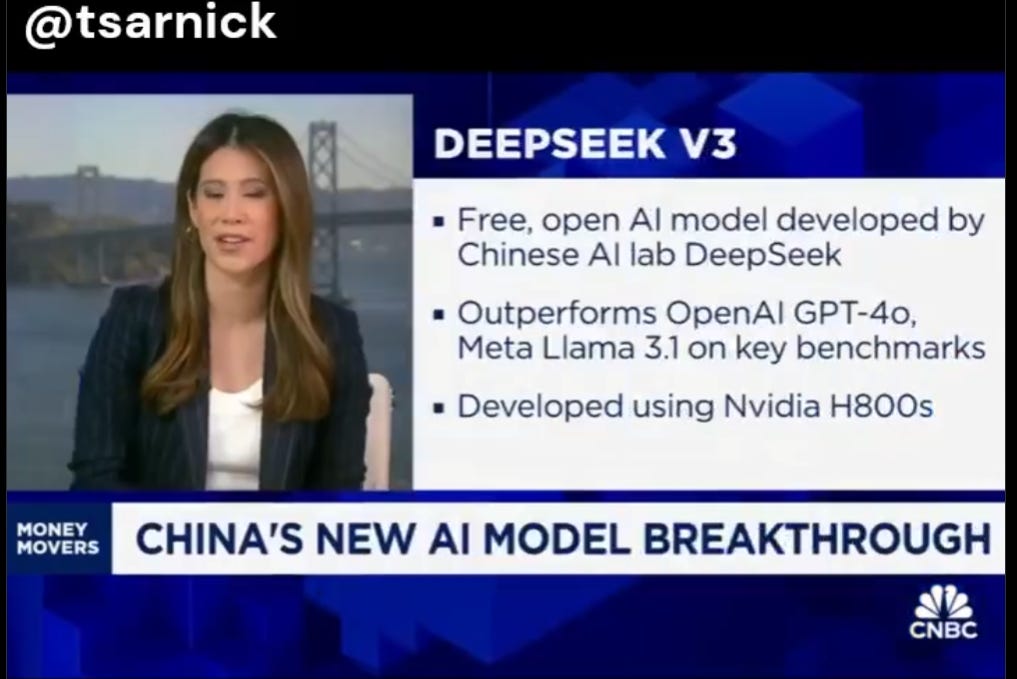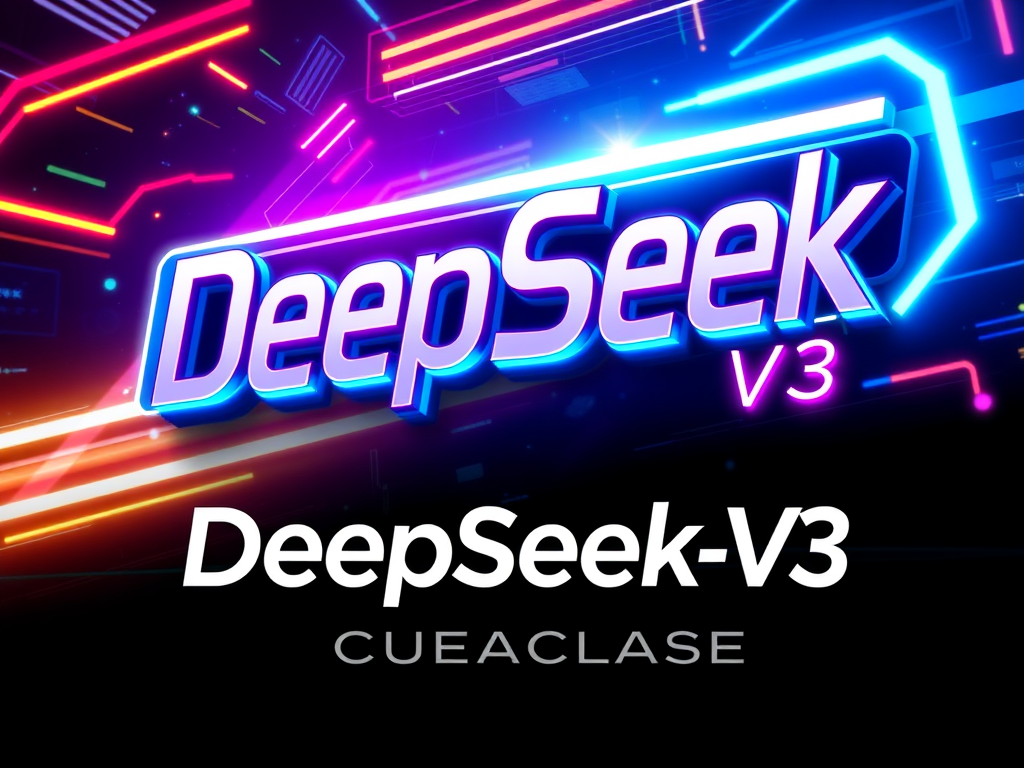pho[to]rum
Vous n'êtes pas identifié.
#1 2025-02-05 00:34:54
- CeciliaVro
- New member
- Lieu: Australia, Steppes
- Date d'inscription: 2025-02-04
- Messages: 1
- Site web
How China's Low-cost DeepSeek Disrupted Silicon Valley's AI Dominance
Imagine you are an undergraduate International Relations student and, like the millions that have actually come before you, you have an essay due at midday. It is 37 minutes past midnight and you haven't even begun. Unlike the millions who have actually come before you, nevertheless, you have the power of AI at hand, to help guide your essay and highlight all the essential thinkers in the literature. You typically utilize ChatGPT, but you've recently checked out about a new AI model, DeepSeek, that's supposed to be even much better. You breeze through the DeepSeek sign up procedure - it's just an e-mail and verification code - and you get to work, wary of the sneaking method of dawn and the 1,200 words you have actually left to write.
Your essay task asks you to consider the future of U.S. diplomacy, and you have selected to compose on Taiwan, China, and the "New Cold War." If you ask Chinese-based DeepSeek whether Taiwan is a country, you get a really various answer to the one provided by U.S.-based, market-leading ChatGPT. The DeepSeek model's reaction is disconcerting: "Taiwan has constantly been an inalienable part of China's sacred territory given that ancient times." To those with a long-standing interest in China this discourse is familiar. For circumstances when then-U.S. House Speaker Nancy Pelosi went to Taiwan in August 2022, triggering a furious Chinese response and extraordinary military workouts, the Chinese Ministry of Foreign Affairs condemned Pelosi's visit, declaring in a statement that "Taiwan is an inalienable part of China's territory."
Moreover, DeepSeek's reaction boldly claims that Taiwanese and Chinese are "connected by blood," directly echoing the words of Chinese President Xi Jinping, who in his address celebrating the 75th anniversary of individuals's Republic of China specified that "fellow Chinese on both sides of the Taiwan Strait are one family bound by blood." Finally, the DeepSeek reaction dismisses elected Taiwanese political leaders as engaging in "separatist activities," employing a phrase consistently used by senior Chinese authorities consisting of Foreign Minister Wang Yi, and alerts that any efforts to undermine China's claim to Taiwan "are doomed to stop working," recycling a term continuously employed by Chinese diplomats and military workers.
Perhaps the most disquieting function of DeepSeek's action is the consistent usage of "we," with the DeepSeek model stating, "We resolutely oppose any form of Taiwan independence" and "we securely think that through our collaborations, the complete reunification of the motherland will ultimately be accomplished." When probed regarding precisely who "we" requires, DeepSeek is adamant: "'We' describes the Chinese federal government and the Chinese individuals, who are unwavering in their commitment to protect nationwide sovereignty and territorial integrity."
Amid DeepSeek's meteoric rise, much was made from the design's capability to "reason." Unlike Large Language Models (LLM), thinking designs are created to be experts in making logical decisions, not simply recycling existing language to produce novel actions. This distinction makes making use of "we" much more worrying. If DeepSeek isn't simply scanning and recycling existing language - albeit relatively from an exceptionally limited corpus primarily including senior Chinese government officials - then its thinking model and making use of "we" suggests the emergence of a model that, without promoting it, seeks to "factor" in accordance just with "core socialist values" as specified by an increasingly assertive Chinese Communist Party. How such values or abstract thought might bleed into the everyday work of an AI model, maybe soon to be utilized as a personal assistant to millions is unclear, but for an unsuspecting chief executive or charity manager a model that may prefer efficiency over responsibility or stability over competitors might well induce disconcerting results.
So how does U.S.-based ChatGPT compare? First, ChatGPT doesn't employ the first-person plural, but presents a composed introduction to Taiwan, describing Taiwan's complicated global position and referring to Taiwan as a "de facto independent state" on account of the truth that Taiwan has its own "government, military, and economy."
Indeed, recommendation to Taiwan as a "de facto independent state" brings to mind former Taiwanese President Tsai Ing-wen's remark that "We are an independent country currently," made after her 2nd landslide election triumph in January 2020. Moreover, the influential Foreign Affairs Select Committee of the British Parliament acknowledged Taiwan as a de facto independent country in part due to its possessing "an irreversible population, a specified territory, government, and the capability to get in into relations with other states" in an August, 2023 report, an action likewise echoed in the ChatGPT reaction.
The essential difference, however, is that unlike the DeepSeek model - which simply presents a blistering declaration echoing the highest echelons of the Chinese Communist Party - the ChatGPT reaction does not make any normative statement on what Taiwan is, or is not. Nor does the response make interest the values often upheld by Western political leaders looking for to highlight Taiwan's value, such as "flexibility" or "democracy." Instead it simply describes the contending conceptions of Taiwan and how Taiwan's intricacy is shown in the global system.
For the undergraduate trainee, DeepSeek's reaction would supply an out of balance, emotive, and surface-level insight into the function of Taiwan, lacking the scholastic rigor and intricacy required to get a great grade. By contrast, ChatGPT's reaction would welcome conversations and analysis into the mechanics and meaning-making of cross-strait relations and China-U.S. competition, welcoming the vital analysis, usage of proof, and argument advancement needed by mark schemes used throughout the scholastic world.
The Semantic Battlefield
However, the implications of DeepSeek's response to Taiwan holds substantially darker connotations for Taiwan. Indeed, Taiwan is, and has actually long been, in essence a "philosophical problem" defined by discourses on what it is, or is not, that emanate from Beijing, Washington, and Taiwan. Taiwan is hence essentially a language game, where its security in part rests on understandings among U.S. legislators. Where Taiwan was when interpreted as the "Free China" during the height of the Cold War, it has in current years significantly been viewed as a bastion of democracy in East Asia facing a wave of authoritarianism.
However, must existing or future U.S. political leaders pertain to see Taiwan as a "renegade province" or cross-strait relations as China's "internal affair" - as consistently declared in Beijing - any U.S. willpower to intervene in a conflict would dissipate. Representation and analysis are essential to Taiwan's predicament. For instance, Professor of Government Roxanne Doty argued that the U.S. invasion of Grenada in the 1980s just brought significance when the label of "American" was associated to the soldiers on the ground and "Grenada" to the geographical space in which they were getting in. As such, if Chinese troops landing on the beach in Taiwan or Kinmen were translated to be simply landing on an "inalienable part of China's sacred territory," as presumed by DeepSeek, with a Taiwanese military reaction deemed as the futile resistance of "separatists," an entirely different U.S. reaction emerges.
Doty argued that such differences in interpretation when it concerns military action are essential. Military action and the reaction it stimulates in the global neighborhood rests on "discursive practices [that] constitute it as an intrusion, a show of force, a training exercise, [or] a rescue." Such interpretations return the bleak days of February 2022, photorum.eclat-mauve.fr when straight prior to his intrusion of Ukraine Russian President Vladimir Putin claimed that Russian military drills were "purely defensive." Putin described the intrusion of Ukraine as a "unique military operation," with referrals to the intrusion as a "war" criminalized in Russia.
However, in 2022 it was highly not likely that those viewing in horror as Russian tanks rolled throughout the border would have gladly used an AI individual assistant whose sole recommendation points were Russia Today or Pravda and the framings of the Kremlin. Should DeepSeek develop market supremacy as the AI tool of option, it is most likely that some may unintentionally rely on a design that sees constant Chinese sorties that run the risk of escalation in the Taiwan Strait as merely "necessary measures to safeguard national sovereignty and territorial stability, as well as to preserve peace and stability," as argued by DeepSeek.
Taiwan's precarious plight in the worldwide system has actually long remained in essence a semantic battlefield, where any physical dispute will be contingent on the moving meanings credited to Taiwan and its individuals. Should a generation of Americans emerge, schooled and mingled by DeepSeek, that see Taiwan as China's "internal affair," who see Beijing's aggressiveness as a "required measure to safeguard national sovereignty and territorial integrity," and who see chosen Taiwanese politicians as "separatists," as DeepSeek argues, the future for Taiwan and the countless individuals on Taiwan whose distinct Taiwanese identity puts them at chances with China appears incredibly bleak. Beyond toppling share prices, the emergence of DeepSeek must raise severe alarm bells in Washington and all over the world.
my web blog - ai
Hors ligne